Andrew Forrest: ‘If China can do 5 per cent, there’s no reason why we can’t too’
Fortescue billionaire Andrew Forrest agrees Australia needs more economic ambition, calls out Beijing’s ‘intolerable’ cyberattacks on the UK, and explains why he’s bullish about iron ore.
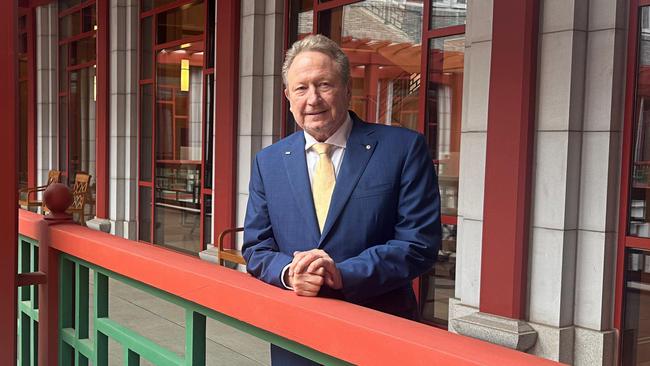
Billionaire Andrew Forrest says Jim Chalmers is “completely correct” in urging Australia to have more ambition about its long term growth targets, with the Fortescue founder saying “if China can do 5 per cent, there’s no reason why we can’t too”.
Treasurer Chalmers laid down a challenge to the country’s top corporate leaders at a Business Council of Australia dinner last week, urging them to invest in “new foundations for growth” as the “global economic deck gets reshuffled”.
Australia’s richest man endorsed Dr Chalmers’s analysis that the global energy transition created huge economic opportunities, which could help lift Australia’s long-term growth targets.
“Jim is completely correct,” the Fortescue executive chairman told The Australian in an interview on Tuesday.
Dr Forrest said the Treasurer had “the levers of power” to make Australia’s actual long-term growth rate a multiple of Canberra’s current projections of 2.2 per cent a year.
“If China can do 5 per cent, there’s no reason why we can’t too. Our population is hard working. Our population is smart. Our population is determined. We just happen to have all the resources which China doesn’t,” he said.
The iron ore and clean energy entrepreneur was speaking from Beijing where he has been meeting with China’s leaders and key policy makers. Along with BHP CEO Mike Henry and Rio Tinto’s Jakob Stausholm, over the weekend he was at the China Development Forum, an event held in Beijing as many international businesses have been debating their future in the world’s second biggest economy.
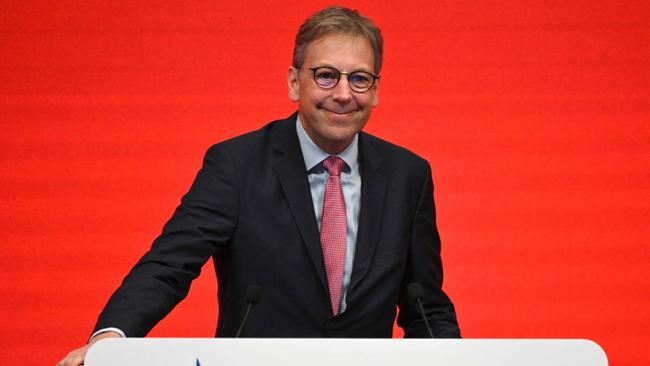
Dr Forrest said Beijing was being “very welcoming” to international businesses, but said the tense geopolitical environment posed challenges.
“It’s becoming more difficult because of bellicose North American attitudes. And China kicks an own goal through these cyber activities into democratic institutions. That is just intolerable,” he told The Australian.
On Tuesday, Foreign Minister Penny Wong joined her counterparts from the United Kingdom, United States and New Zealand in calling out “China state-backed actors” that had targeted democratic institutions and parliamentarians in the UK.
Dr Forrest said that China’s cyber interference “might not be an act of war, but it’s hostile”.
“I feel that China is such a huge and vast organisation that, generally, it’s attitude is to be very friendly with the rest of the world. But it does trip up,” he said.
Beijing never interfered with supplies of iron ore during its economic coercion campaign on Australia, but the tense relationship raised anxiety among all China-exposed businesses. Later this week, Beijing is expected to remove the punitive tariffs it put on the Australian wine industry in November 2020.
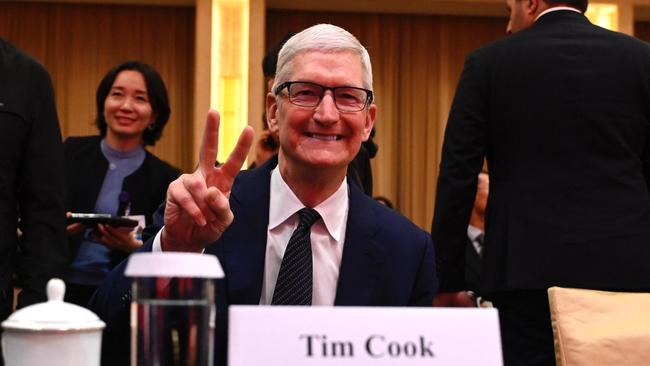
Dr Forrest welcomed the improvement in the relationship which he said had gone from “childish and politically motivated” to “maturity”.
“I see a real consolidation of the relationship and trust building back into the Australia-China bilateral relationship. And that is necessary to continue the growth of the economies of both countries,” he said.
China-reliant miners BHP, Rio Tinto and Fortescue are Australia’s three biggest taxpayers. A fall in iron ore prices by almost 25 per cent this year to just over US$105 a ton ($160 a ton) is being closely watched by the Treasury in Canberra.
The founder of Fortescue, the “third force” of Australia’s iron ore export trade, said he remained confident about the “constant demand” from China’s steelmaking industry.
“Ebbs and flows, for sure, you see that. But the big mega trends are unchanged,” he said.
He said a private dinner on Sunday night with Yi Gang, the last head of the People’s Bank of China, had reaffirmed that confidence.
The country’s former central bank chief, who stood down last July, detailed various fiscal stimulus measures Beijing was using to support housing, car ownership and the purchase of other big consumer items.
Dr Forrest said China’s latest growth target of “about 5 per cent” announced by Premier Li Qiang earlier this month would have been “a bit of a yawn” a decade ago. But he said growth at that rate for an economy as “massive” as China’s now would lead to “a serious increase in goods and services … from around the world”.
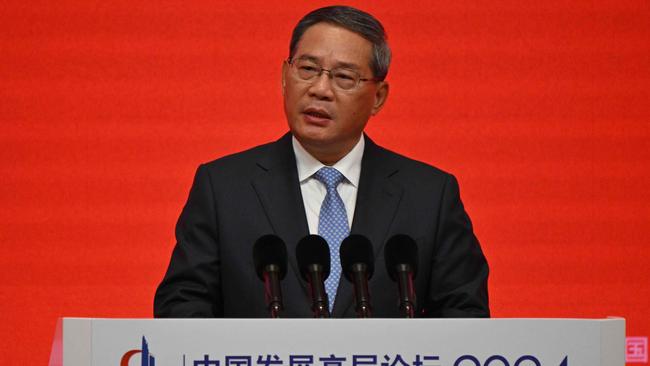
On Thursday, the Fortescue founder will speak at the Boao Forum, another business forum held on China’s Hainan island.
Dr Forrest’s address will focus on the clean energy transition and China’s role in it. Since last year’s Boao Forum, Beijing has built and installed 260 to 300 gigawatts of renewable energy, according to analysts at Bloomberg.
That “huge uptick” has supported Fortescue’s iron ore business, which is being used in “all the infrastructure it takes to create green energy and connect it to the grid,” Dr Forrest said.
Last week, industry leaders at an oil and gas conference in Houston said the huge infrastructure rollout to support energy grids, along with power-hungry artificial intelligence data centres and world population increases, were extending the commercial viability of fossil fuels.
Dr Forrest said those comments had been useful for exposing the “lip service” of the fossil fuel industry only months after climate scientists declared 2023 the hottest year on record.
“The climate is going to hell in a handbag unless we turn it around,” he told The Australian.
“The fossil fuel industry’s lip service to the energy transition is no more than that. It’s like carbon sequestration. It’s literally the same old lie but waiting for the next new idiot to come along and believe it,” he said.




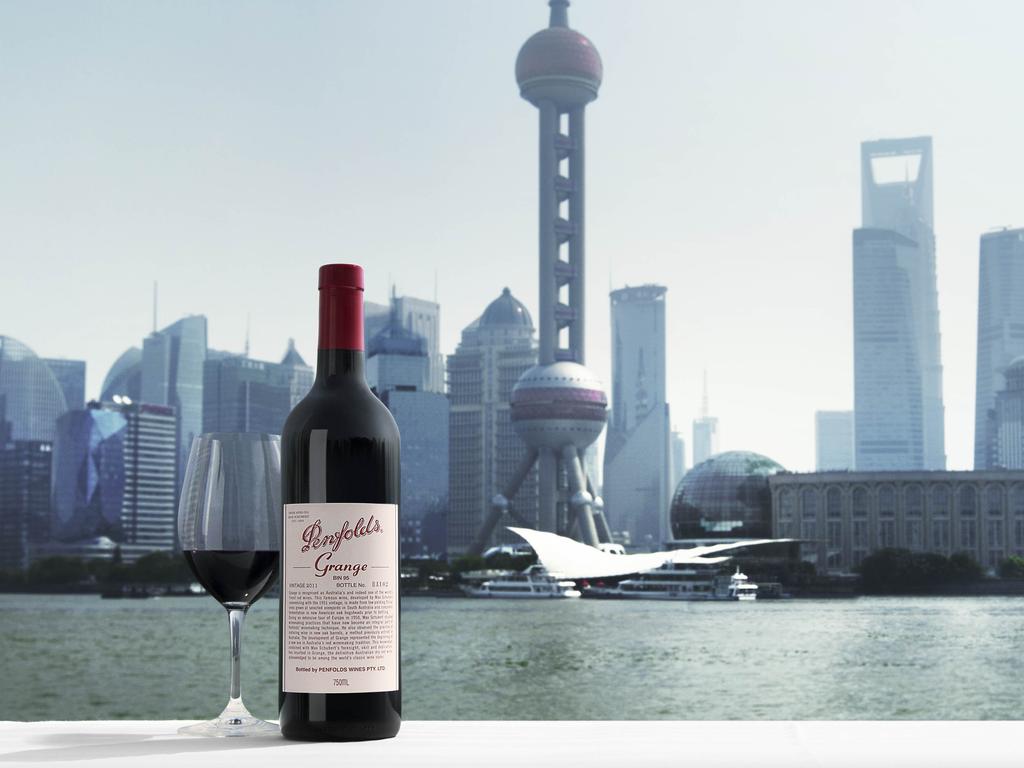
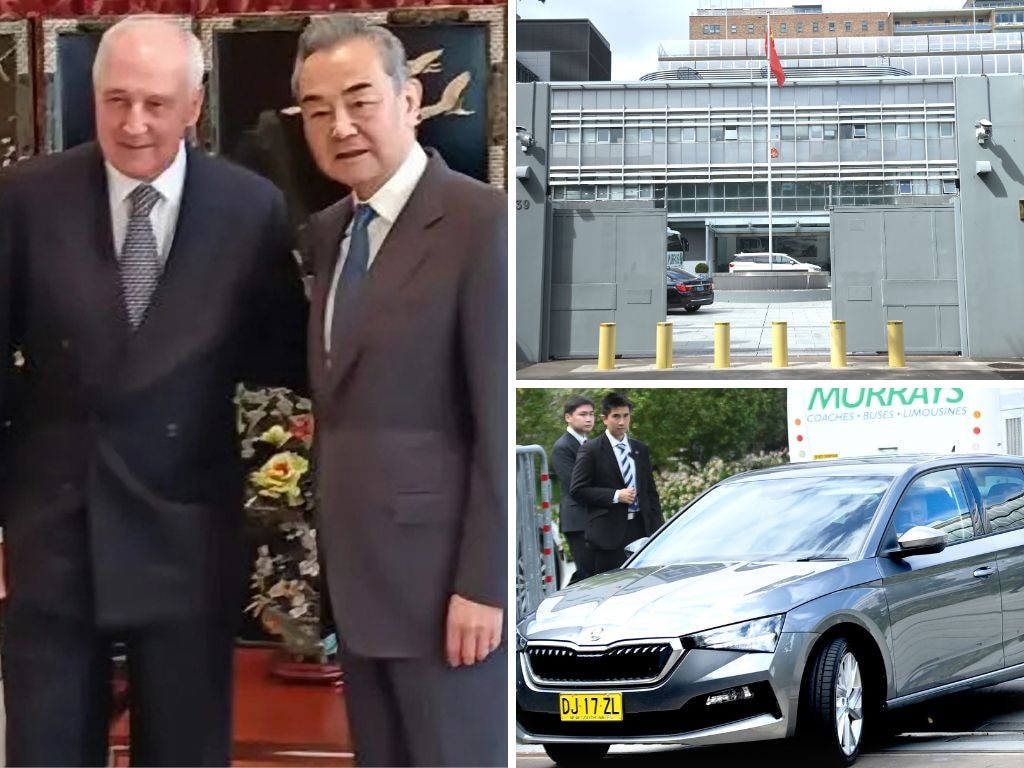


To join the conversation, please log in. Don't have an account? Register
Join the conversation, you are commenting as Logout